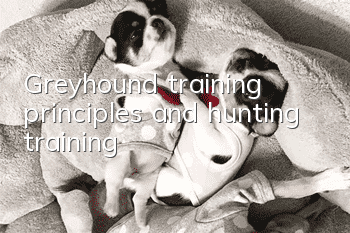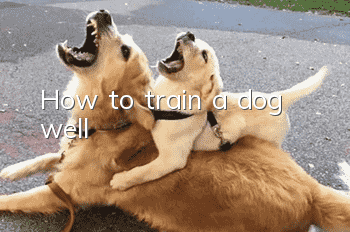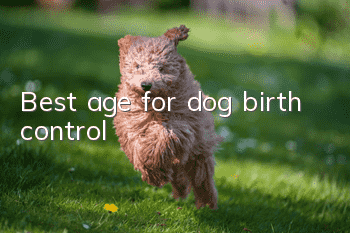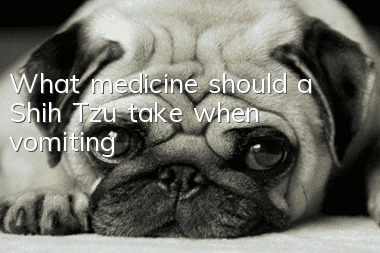Greyhound training principles and hunting training

Training of hounds Our country’s hunters have rich experience in training hounds. To sum up, there are basic training principles, primary training of puppies and hunting training.
1. Basic principles of hound training: Before introducing the primary training and hunting training of puppies in detail, let’s talk briefly about the general principles that must be followed when training hounds.
(1) The importance of training; part of the hunting ability of hounds is acquired from innate inheritance, and part is cultivated through strict training since childhood. A qualified hunting dog often comes from the results of the hunter's hard training. Without strict, continuous and timely training, no matter how good the dog's innate breed is, it will not become an excellent hunting dog. Therefore, hunting dog training is very important.
(2) Specialist training: Training of hounds must start from the young age of the dog, with a dedicated person responsible, and the dog owner cannot be changed midway. If you change the dog head coach midway, it will be difficult to achieve satisfactory success. Not to mention you can't keep it for two days and let it play with it for a while. This will inevitably distract the energy of the puppy and seriously affect the improvement of hunting ability. If you treat a puppy as a plaything, it will only be a dog for fun when it grows up.
(3) Training items and training time: An excellent hound must have the three hunting skills of searching, chasing, and picking up. Therefore, tracking and searching, chasing and attacking, and picking up prey are the focus of training. The purpose of training is to form a strong hunting conditioned reflex in the minds of puppies and learn these three hunting skills so that they can complete the hunting tasks assigned to them by hunters in the future. The six, seven, and eight months after a puppy is born are the fastest period for its advanced neurological development, and it is also the golden period for training puppies in hunting movements. At this time, the puppies must undergo strict and systematic training so that they can have good hunting conditioned reflexes. After one year, the development of the hound has been completed, and the quality of the hound has been determined, so retraining is very difficult.
(4) Training place: The primary training of puppies can be carried out in the hunter’s living area, such as a wide courtyard, a rural threshing floor, an open space outside the village, etc. However, puppy hunting action training must be carried out in a real mountain forest hunting ground. Through hunting ground training, the hunting skills of hounds are fully developed. The puppies are taught to track, search, chase, attack and pick up prey, and overcome activities that do not meet the requirements of hunting. The more times a puppy participates in actual hunting training, the better its hunting skills will be. Therefore, hunters should often lead their puppies on training hunts.
(5) Basic methods; For dog training, the basic methods are encouragement and force. Encourage the development of its hunting movements and force it to correct activities that do not meet the hunting requirements. To this end, we should talk about combining encouragement and force as the basic method of training hounds. Encouragement methods include luring. When the puppy completes an action, the hunter should encourage it with meat in time. If the puppy is timid and dare not go into the water to pick it up, the hunter should drag the puppy into the water. When hunters use encouragement or coercion to train puppies, they must be gentle and cannot kick or hit them at will. When the puppy's activities do not meet the hunting requirements, the hunter must tenaciously correct it repeatedly and continuously.If you make mistakes, patiently teach it the intended hunting action, and never be accommodating or indulgent. Otherwise, it will leave bad problems on the hound and affect future hunting.
(6) Do not ask for hounds beyond the scope: hounds only have a certain primary accumulation of experience and the ability to control their own behavior. It is wrong to compare these behaviors of hounds with human thoughts and behaviors. Therefore, you cannot do anything wrong to hounds. Realistically high demands.
2. Primary training of puppies: The period from two months to six months after the puppies are born is the period of primary training for puppies. Initial puppy training includes;
(1) Training to obey the owner’s orders; the primary training of hunting dogs should start from two months after the puppy is born. During this period, the puppy’s brain nerves begin to develop. Through training, the developing nerves of the puppy can form the necessary information for hunting. Conditioned reflex. The months of June, July, and August are the fastest period for puppies' advanced neurological development, and they are also the best period for training. After ten months, the hound's development has matured and its hunting performance has been finalized. It is already very difficult to train again. For this reason, the puppy should be weaned at two months, brought back and fed alone, and given a simple and loud name, such as "Little Yellow", "Saihu", "Little Black", etc. The hunter can call it at any time. Help the puppy's developing brain to remember its name firmly. Every time "feeding", the hunter should call the puppy's name so that the puppy can develop the good habit of obeying the command and coming immediately. He should also call frequently with a whistle so that the puppy can develop the habit of coming when it hears the owner's whistle. Conditioned reflex, which is very important for future forest hunting. When puppies learn some simple actions, the training distance should be gradually increased, and the encouragement of stroking or tapping the forehead should gradually be used instead of food lures. The orders issued by the hunter must be simple and precise. Such as "go", "come back"...it must be trained repeatedly and frequently to form a strong conditioned reflex. When the puppy grows to five or six months old, it must be trained on hunting skills. It must be taught to perform accurate execution during the initial training. "Get up", "Don't move", "Lie down", "Chase", "Bite" and other hunting commands. When the puppy accurately executes these hunting commands, the hunter should caress and encourage it, and also reward it with some good food to make it more attractive. It is happy to carry out its master's orders.
(2) Training to follow the owner: Puppies are very friendly to people and are willing to follow their owners. Therefore, it is easier to train puppies to follow their owners. At first, they can be lured with food, and gradually they will love to follow their owners even without food temptations. However, in order for the puppy to be able to follow its owner closely without running around, it must be done through repeated training. First practice to follow, youngDogs are very curious about the surrounding scenery and sometimes run away to smell and watch. The hunter must call it back immediately. If necessary, take coercive measures to teach the puppy to follow with a leash. After getting used to it, remove the collar, and finally train the puppy to have a good habit of walking beside the owner. (3) Cultivation of the brave character of hounds; three months after the puppy is born, the hunter should take it to the wild frequently to familiarize it with the natural environment such as mountains, forests, etc., and cultivate the puppy's brave character. A puppy of a good breed will turn into a timid, useless dog if it is chained at home all day long. On the contrary, if the breed of the puppy is not very good, if it can be practiced regularly and the hunter often takes the dog to the mountains and forests, it will also be trained into a good and brave hound. Take your puppy for outdoor activities and don’t be afraid that he will get lost. Calling it all the time and not letting it have any independent activities is not good for the growth of the puppy.
- How to prevent newborn puppies from dying?
- The whole process of "washing, cutting and blowing" your dog
- What to do if your dog eats chili pepper
- The two major disadvantages of shaving your dog
- What should your dog’s first aid supplies include?
- Are dogs born with rabies virus?
- What should I do if my dog gets fungus and what are the methods of medication?
- How to bathe English Bulldog puppies
- How to train a German Shepherd to sit and lie down?
- How long does it take for a silver fox puppy to recognize its new owner?



